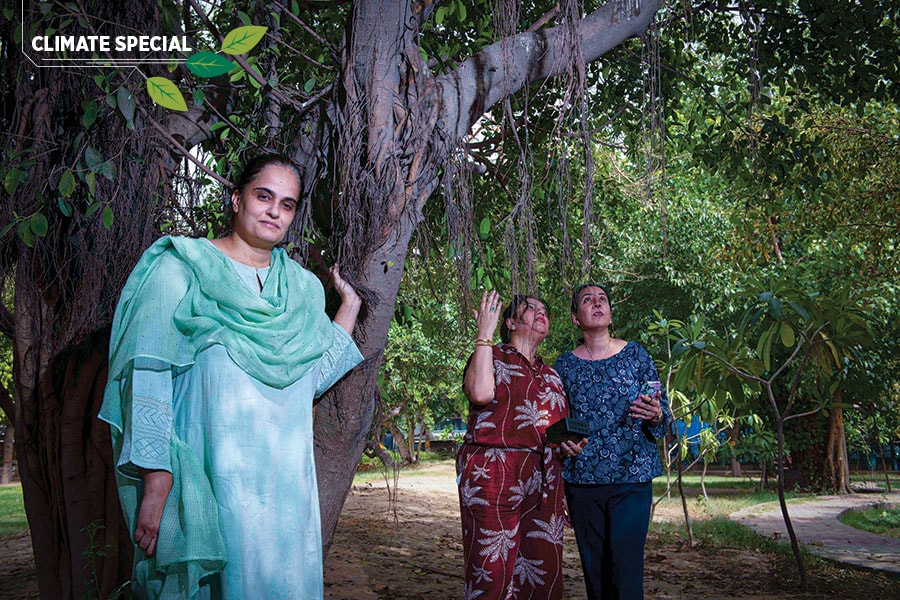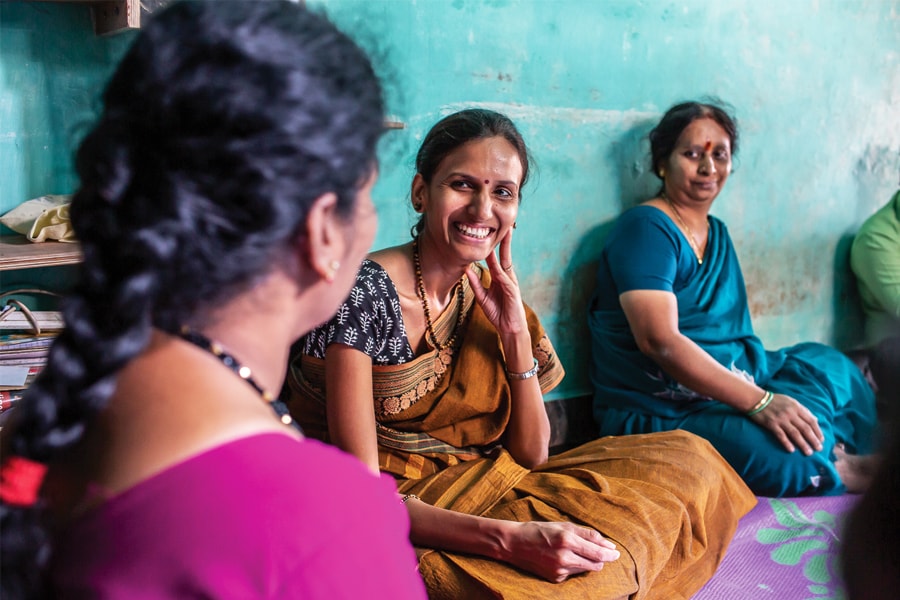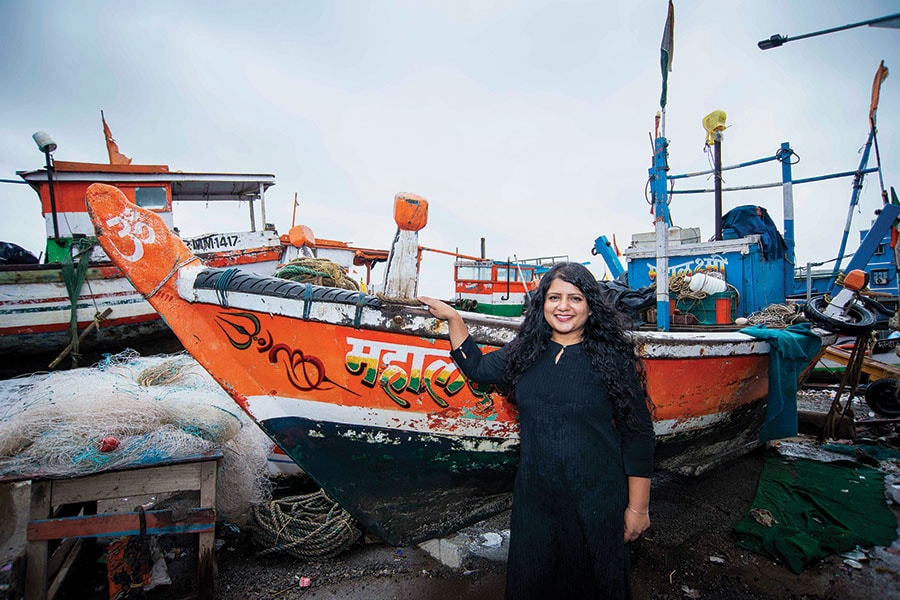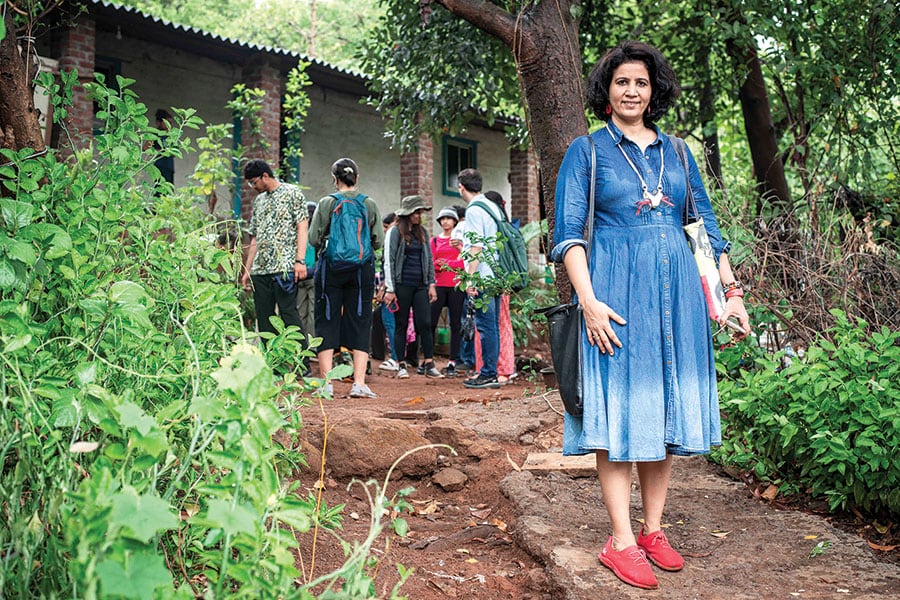From advocacy to awareness: Women-led communities are finding their voice in the climate space
Even as governments sign accords, and startups find tech solutions to help with the impacts of the climate crisis, women-led communities are bringing their might and perspective to find solutions on the ground to deal with the climate crisis
 (From left): Bhavreen Kandhari, founder of WarriorMoms, with other members Vandana Narang and Chinky Singh, while they collect data of ambient temperature and AQI levels at a park in Defence Colony in New Delhi
Image: Amit Verma
(From left): Bhavreen Kandhari, founder of WarriorMoms, with other members Vandana Narang and Chinky Singh, while they collect data of ambient temperature and AQI levels at a park in Defence Colony in New Delhi
Image: Amit Verma
Delhi-based environmentalist Bhavreen Kandhari has been fighting for clean air since the early 2000s. But it was under the clear, blue skies of the pandemic that she decided it was time to make a shift—from advocacy to action mode. Getting together a network of other like-minded women who were concerned about the health of their children, she co-founded WarriorMoms to provide resources and support, and help people push the authorities into taking action.
“We had always been trying to push with the government to work on emissions, because you get clean air only by curbing the sources of emissions” she says. The lockdown was, she adds, like the world’s largest experiment coming true. “So, this warrior movement was a desperate move to come into an actionable mode. There was enough said in the name of advocacy, now we had to be demanding, and also putting all our conversations, our work, our campaigns into action mode,” says the mother of twin daughters, who, despite working for clean air for years, knows she has not managed to save her daughters from lung damage.
WarriorMoms creates awareness on sources of air pollution and climate change. The members educate and empower citizens to take action by creating a database of rules, regulations, and authorities to contact. They engage with officials to enforce regulations. The community has also been working towards protecting trees, pushing solid waste management byelaws, and reducing emissions and pollution. The community has grown to 13 states with members in 53 cities—all women working towards the common goal of climate action.
Even as governments sign accords, and startups find tech solutions to help with the impacts of the climate crisis, communities like WarriorMoms—women-led and working with women—are bringing their might and perspective to find solutions on the ground to deal with the climate crisis and drive action.
The Changemakers
All research and reports suggest that women and children are more vulnerable and are disproportionately larger victims of climate change. For instance, in rural areas, with water depletion, women have to walk longer distances to procure it. When there is less food and lower agriculture output, it affects women nutritionally since they are the last to eat in families, and if men start drinking due to crop failure, women could be victims of domestic violence.(This story appears in the 28 June, 2024 issue of Forbes India. To visit our Archives, click here.)




















